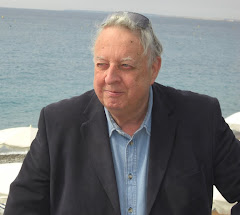Listening to Mischa
Elman with the “New Symphony Orchestra” playing a Vivaldi
concerto (1931) prompts the thought that they do not play Vivaldi
like that, any more. To which an ascetic academic would probably
comment “thank goodness” and many others would say “more's the
pity”. Elman came from a background where the fiddler's role was to
enchant the listener, and I suspect Vivaldi would have nodded his
head in approval and said “to hell with period practice!”
Mischa Elman (born
1881) came from the Leopold Auer stable in Saint Petersburg.
Unfortunately, he signed an exclusive recording deal with RCA in
America, and RCA did not believe in duplicating repertoire so gave
all the prime repertoire slots to its favourite exclusive violinist,
Jascha Heifetz. Elman had to pick up the crumbs, so his recorded
legacy is mainly bits and pieces, often recorded when he was past his
prime. The earliest recording I have of him is in 1906; the latest
1966. He died in 1967, aged 76. The later recordings he made when, presumably released from his
RCA contract in the 1950s, show the old Elman, but much of the fire
and virtuosity are missing. I have long been a fan of Elman's violin
playing; he is a violinist for lovers of the old Russian and central
European school of violin playing (his grandfather was a klezmer
violinist).
Mendelssohn's charming
violin concerto plumbs no great musical or emotional depths and
because of complete over-familiarity, it is no longer a work that
holds my attention for the music alone. It can, however, hold my
attention because of the violin playing, as it does in a 1947
recording of Elman with the Chicago Symphony Orchestra. Elman's
violin sings! (Another recording of the work that I still
enjoy is Yehudi Menuhin in 1938, with George Enescu
conducting, one of Menuhin's last truly spontaneous recordings before
the onset of the periods of fallibility). My Elman recordings are
ones I shall never part with during my lifetime; he is always a tonic
for lovers of violin playing.
